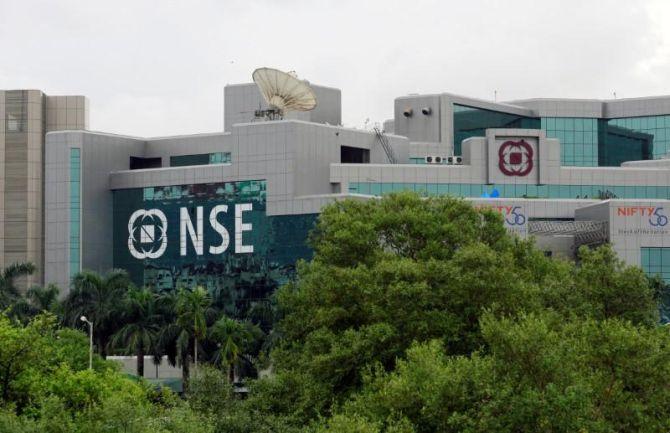In a first for India, bullion derivatives contracts will be settled on a blockchain platform.

This will help in global acceptance of gold refined by Indian bullion refineries, giving a fillip to the local industry, exports, as well as investments.
From November 1, the National Stock Exchange (NSE) will accept gold delivery only on the blockchain platform.
The NSE, in collaboration with Bengaluru-based start-up Chainflux, launched the NSE-Shine project last Wednesday.
The exchange was working on the project for almost a year, along with India Gold Policy Centre at the Indian Institute of Management Ahmedabad (IIMA) and the India Bullion and Jewellers Association.
As of now, gold refined by Indian bullion refineries, except MMTC-PAMP, is not recognised by the London Bullion Market Association (LBMA).
India’s quality regulator, the Bureau of Indian Standards (BIS), has developed gold standards, but Indian refined gold is used only locally and not acceptable for exports.
In India, commodity exchanges, such as the Multi Commodity Exchange of India, BSE, and NSE, have recognised non-LBMA refined gold as good delivery for derivatives.
But now, the NSE is moving towards recognising gold delivery through blockchain.
The issue for exports is to meet responsible sourcing of unrefined or dore gold, as well as maintaining internal qualities that are globally acceptable.
NSE-Shine will ensure these are met.
Over time, when gold deliveries by Indian refineries (other than for NSE) get covered on blockchain, such gold will eventually find acceptance globally.
Abhinav Ramesh, chief executive officer at Chainflux, a blockchain start-up funded by Chiratae Ventures, says, “The NSE-Shine bullion blockchain platform is a first-of-its kind initiative in the precious metals industry in India, and potentially one of the largest enterprise blockchain implementations in India, given the high value of gold and gold being one of the largest asset classes in the world.”
The Shine is an end-to-end system covering the ‘permissioned’ blockchain system.
For example, Bitcoin, the largest cryptocurrency, is on decentralised blockchain.
But Shine is open only to those who are authorised to view the data on the platform.
“The access will be with a proof of authority-based consensus mechanism and the platform ensures in-built account management hierarchy and a file storage system,” adds Ramesh.
The platform provides the data integrity for responsible sourcing, purity, quality, and authenticity of bullion bars.
The blockchain creates a framework for bullion bar integrity for settlement of gold derivatives contracts, which will be extended to spot contracts on operationalisation of the NSE domestic spot exchange, he said.
Initially, using this platform on the NSE’s derivatives segment, Indian refined gold will be covered, which is almost 40 per cent of imported refined gold.
Later, when the NSE launches a spot gold exchange, the settlement and delivery of gold refined by Indian refineries will happen on blockchain.
Vault services, which are part of the NSE-approved vaults and refineries, will also be covered.
According to sources, so far, five refineries, including Gujarat Gold Centre, Augmont, Kundan Refinery, and M.D. Overseas, and vault service provider Sequel Logistics, have been empanelled by the NSE.
Said Securities and Exchange Board’s executive director V S Sundaresan while virtually inaugurating the project, “We are keen to see how blockchain technology is going to work for the derivatives segment and the upcoming gold spot exchange.
"Having full view into all the data with respect to quality, responsible sourcing of bullion can help regulators and other participants enhance integrity and uphold the reputation of the industry as a whole.”
NSE-Shine assumes significance as its success will inspire the trading of other commodities to move to the blockchain platform.
Its significance can be gauged from what Sudheesh Nambiath, head of India Gold Policy Centre at IIMA, says: “We are seeing various policy frameworks coming up to ensure gold authenticity and purity, especially for gold bullion, jewellery, and the gold monetisation scheme.”
The media note issued to announce the blockchain project says: "There are plans to introduce other services using the blockchain platform, with the blockchain system running in the back-end."
Details of this will be finalised after the project finds acceptance.
As far as delivery of gold refined by Indian refineries in the derivatives segment on blockchain is concerned, the first transfer point from the vault on the exchange platform will be covered.
All sale purchase transactions without gold actually moving out of the vault will also be part of the blockchain.
There is a rider to its success.
The NSE, which developed the NSE-BIS gold standards and worked to bring blockchain on an exchange platform, is yet to taste success in bullion derivatives.
How far the blockchain helps is yet to be seen.
Photograph: Danish Siddiqui/Reuters











